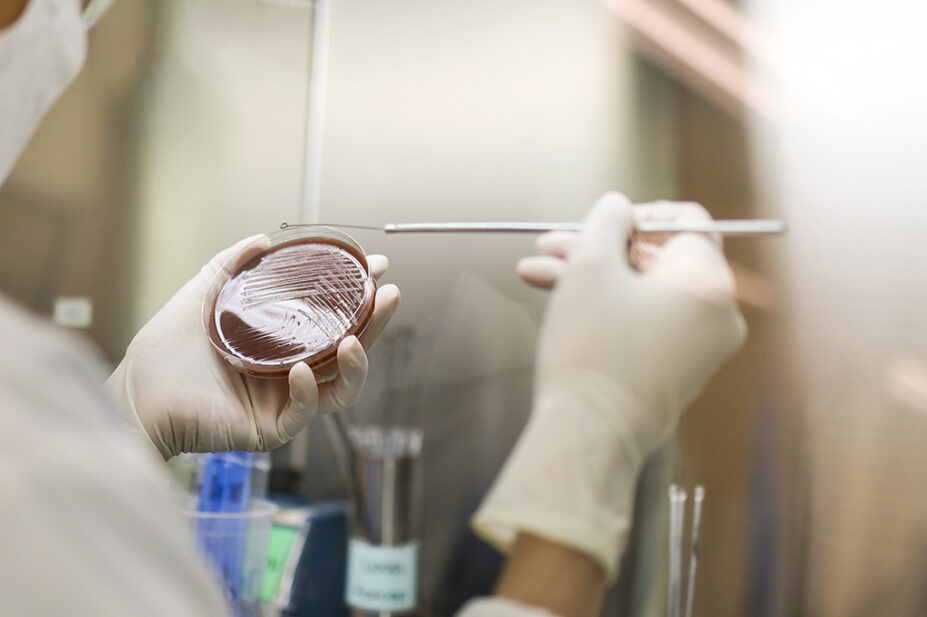
Shutterstock.com
Gepotidacin, a first-in-class triazaacenaphthylene antibiotic, has shown non-inferiority to first-line treatment ceftriaxone plus azithromycin and potentially offers “a novel oral treatment option for uncomplicated urogenital gonorrhoea”, study results have suggested.
The research, published in The Lancet on 14 April 2025 and funded by GSK, also revealed that gepotidacin was effective against Neisseria gonorrhoeae (N. gonorrhoeae) strains that were resistant or non-susceptible to existing antibacterials, which the study authors described as a “crucial factor given the rising threat of antimicrobial resistance to current available treatments”.
Researchers studied data from 628 participants who were randomly allocated into two treatment groups, with 314 participants in each group.
From October 2019 until October 2023, the participants took either two 3,000mg doses of oral gepotidacin administered 10–12 hours apart or 500mg intramuscular ceftriaxone plus 1g oral azithromycin — the latter being the recommended first-line therapy for the treatment of gonorrhoea.
All participants in the study were aged 12 years and older, weighed over 45kg and had suspected uncomplicated urogenital gonorrhoea — including mucopurulent discharge — a positive laboratory test for N. gonorrhoeae or both.
The study was conducted across Australia, Germany, Mexico, Spain, the UK and the United States.
The primary efficacy endpoint was microbiological success, which was defined as culture-confirmed bacterial eradication of N. gonorrhoeae in four to eight days.
In addition, the primary outcome was assessed in the microbiological intention-to-treat population, which included 406 participants — 202 participants in the gepotidacin group and 204 participants in the ceftriaxone plus azithromycin group.
The results demonstrated microbiological success in 187 out of 202 participants (92.6%) in the gepotidacin group and 186 out of 204 participants (91.2%) in the ceftriaxone plus azithromycin group, respectively, with an adjusted treatment difference of -0.1%.
Researchers did not observe bacterial persistence of urogenital N. gonorrhoeae at test-of-cure for either group.
However, the authors said that, as participants were predominantly white and male, further investigation would be needed to determine efficacy in less-represented populations, such as women, adolescents and non-white populations, as well as in combination with other antimicrobials.
Data published by the UK Health Security Agency (UKHSA) in March 2025 show a rise in antibiotic-resistant gonorrhoea cases, including extensively drug-resistant (XDR) strains.
Between January 2024 and March 2025, 17 cases of ceftriaxone-resistant gonorrhoea were reported, compared with 16 cases in the previous two years between January 2022 and December 2023.
UKHSA data also showed that from January 2024 until March 2025, there were nine reported cases of XDR, compared with five cases between January 2022 and December 2023.
“N. gonorrhoeae has developed resistance to every class of antibiotics used to treat it, and cephalosporins are the last remaining class of antibiotics available for use as empirical monotherapy,” the UKHSA said.
Commenting on the study, Nathan Burley, advanced public health/sexual health services pharmacist at NHS Greater Glasgow and Clyde, said: “Gepotidacin represents an exciting new therapeutic in the treatment of gonorrhoea.
“Gonorrhoea treatment options are severely limited due to resistance emergence. Ceftriaxone-resistant gonorrhoea is a significant public health threat on a background of rising sexually transmitted infections in various patient groups. An oral treatment option is generally preferable and could enable treatment of index cases and symptomatic partners in an easier fashion than intramuscular ceftriaxone.”
Richard Angell, chief executive of the Terrence Higgins Trust, said: “A potential new antibiotic to treat gonorrhoea is extremely promising. The government need to get planning now to roll this out in sexual health services in England at pace.
“We are not making full use of the tools we already have to combat record-high gonorrhoea rates and increasing antimicrobial resistance. It’s more than 18 months since the Joint Committee on Vaccination and Immunisation recommended the government role out the MenB gonorrhoea vaccine. They must take action on this now. As the health secretary keeps saying, ‘prevention is better than cure’.”
In 2024, study results showed gepotidacin to be effective and well tolerated in the treatment of uncomplicated urinary tract infections.


